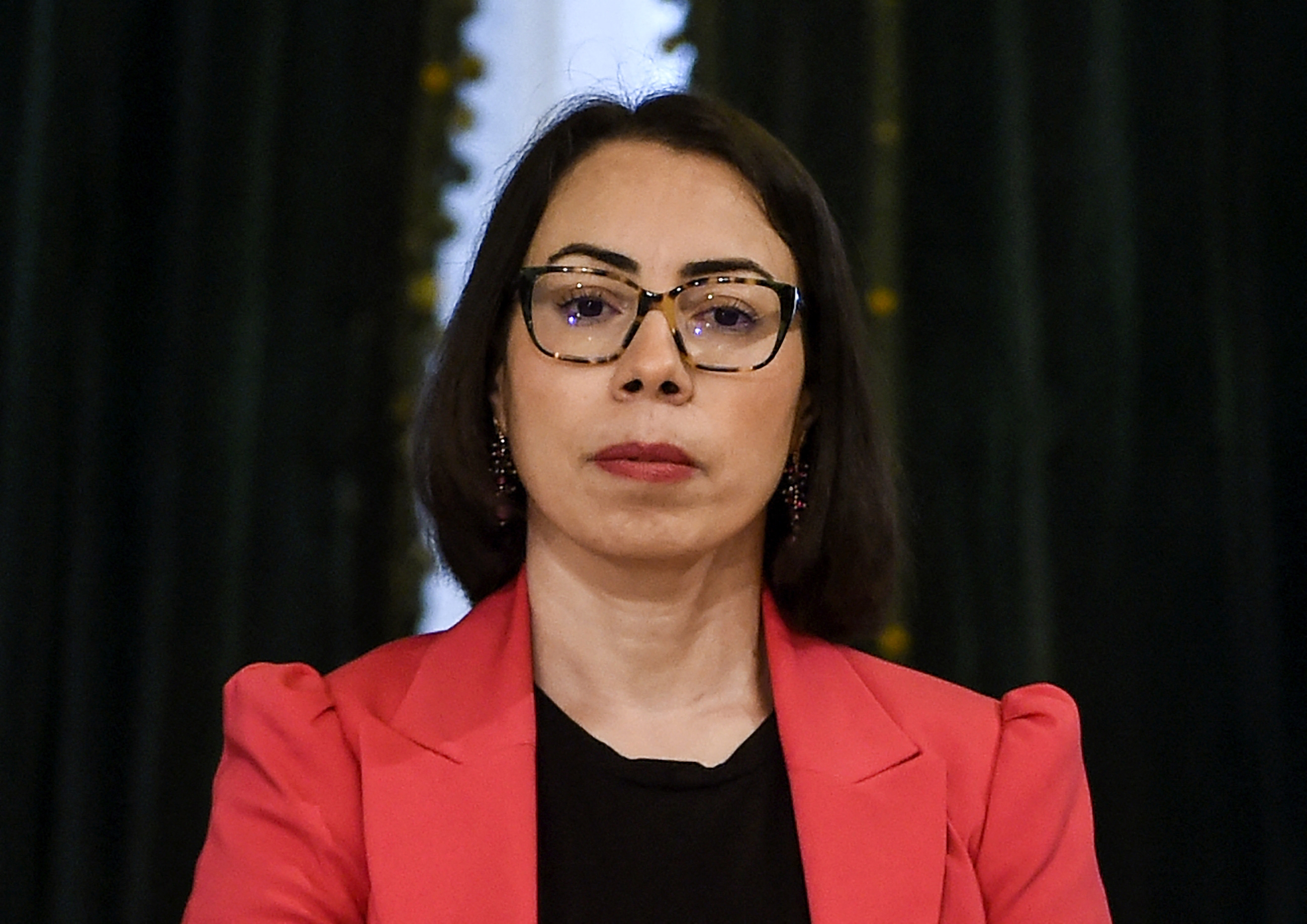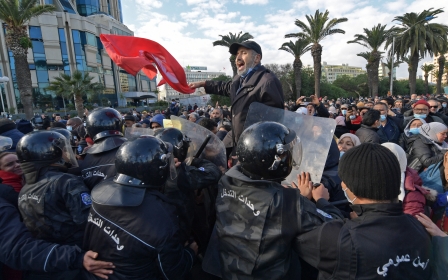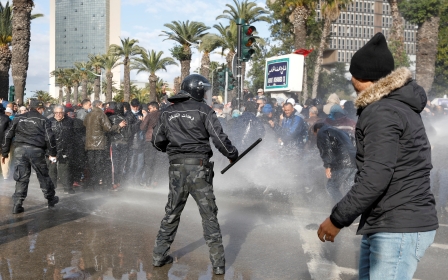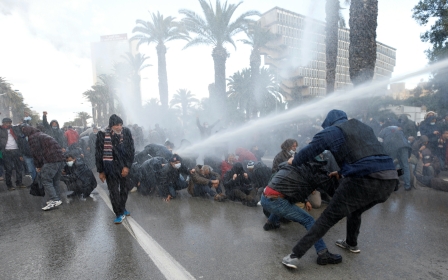Tunisia: President Saied's chief of staff resigns citing 'fundamental disagreements'

Tunisian President Kais Saied's chief of staff, Nadia Akacha, said on Monday she is stepping down, citing "fundamental disagreements" as the president's policies following a July power grab face a growing chorus of critics.
"Today, I decided to submit my resignation to the president of the republic from the position of chief of staff, after two years of service," Akacha said in a Facebook post.
"In the presence of fundamental disagreements related to this best interest, I consider it my duty to withdraw from my position."
Citing informed sources, the London-based news outlet Arabi21 reported that Akacha's resignation was due to army chief of staff Mohamed El Ghoul rejecting her request to arrest parliament speaker and Ennahda party leader Rached Ghannouchi.
In July, Saied seized power in Tunisia, dismissing the government and suspending parliament in moves denounced by its opponents as a coup.
New MEE newsletter: Jerusalem Dispatch
Sign up to get the latest insights and analysis on Israel-Palestine, alongside Turkey Unpacked and other MEE newsletters
Two months earlier, Middle East Eye had revealed that Akacha's office had a copy of a plan for Saied to take these very steps and declare a "constitutional dictatorship", which the authors of the document said would be a tool for "concentrating all powers in the hand of the president of the republic."
Saied cited skyrocketing unemployment, rampant corruption and the coronavirus pandemic as reasons for his power grab.
However, Tunisia remains in a morass and a lack of concrete action has seen many supporters of his move become critical of the president and his policies.
Crackdown on protests
Thousands took part in protests on 14 January in commemoration of the 11th anniversary of the Tunisian revolution, calling for the restoration of democracy.
One protester died as the demonstrations were met with teargas, water cannons, sound bombs, batons and a heavy police presence in the vicinity of Avenue Habib Bourguiba, which effectively blocked them from reaching the area that has been the focal point of demonstrations since the 2011 revolution.
Around 35 people were arrested on charges of violating the coronavirus-linked curfew and the ban on all indoor or outdoor gatherings, which were announced on 11 January - ostensibly to stop a new Covid-19 wave.
A number of the detainees were later released, while others remain in custody on outstanding warrants, including Ahmed Boukados, whose brother Abdel Raouf Boukados was killed during the 2011 uprising.
Saied's measures have been followed by a crackdown on the opposition. The deputy head of Ennahda, the largest party in the now-suspended parliament, remains in custody at a hospital in Tunisia, in circumstances denounced by Human Rights Watch and the United Nations.
Middle East Eye delivers independent and unrivalled coverage and analysis of the Middle East, North Africa and beyond. To learn more about republishing this content and the associated fees, please fill out this form. More about MEE can be found here.




